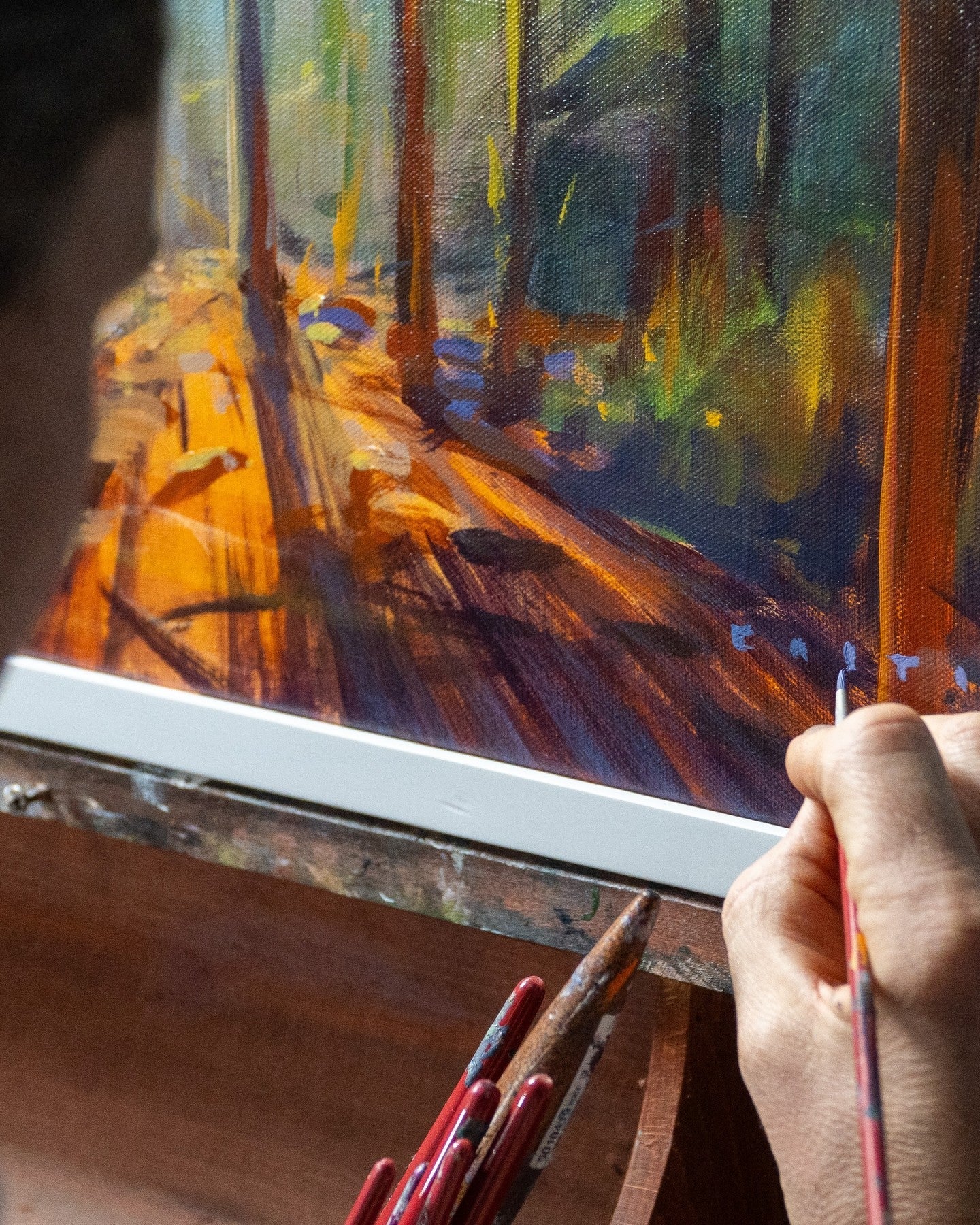When it comes to painting, the brush in your hand can completely change the way your work looks and feels. Whether you’re glazing a sky, chiselling sharp edges, or layering thick texture, each brush has its own personality. Professional landscape painter Charlie Easton explores Opus range of paint brushes to show how softness, stiffness, and shape all play a role in creating expressive, unique marks.
Why Brushes Matter
Artists can use palette knives, scrapers, or even their hands to apply paint, but brushes remain a favourite tool for one key reason: they offer subtlety, flexibility, and that sense of personal “handwriting.” Choosing the right brush—or the right set—helps translate your vision from imagination to canvas.
The Opus Brush Families
Arietta – Soft and Airy

At the gentlest end of the spectrum are the Arietta brushes. Their softness makes them ideal for early underpainting or final glazes. They hold plenty of paint, glide lightly over the canvas, and create a sense of atmosphere and openness.
Legato – Flexible and Responsive

The Legato line is slightly firmer but still soft, with enough spring to hold shape during energetic strokes. These brushes excel in covering large areas, developing shadow patterns, or switching between broad shapes and fine lines in the same stroke.
Denman – Versatile and Balanced

Sitting between softness and stiffness, the Denman brushes are true all-rounders. They offer control, yet allow for painterly textures and flecks at the end of each mark. For many artists, they become the “one brush that does it all.”
Mezzo – Bold and Textural

At the stiffest end, the Mezzo brushes shine in acrylics and oils. They’re built for thick applications of paint, adding peaks, troughs, and tactile textures that catch light and draw the eye. Perfect for bold highlights or expressive impasto work.
Shape and Size Matter
Brushes aren’t just about softness or stiffness—shape plays a huge role too:
Fine-tipped brushes create precise, chiselled lines.
Rounds and filberts carry lots of paint, perfect for broader coverage.
Angled brushes offer control for both positive and negative shapes, carving form with accuracy.
Longer bristles hold more paint, while larger brushes help cover ground quickly. Switching between them allows artists to move from delicate details to expansive, expressive marks within the same painting.
From Glazes to Highlights
Easton demonstrated how these brushes evolve across a painting:
Starting with soft Ariettas for early glazes and light marks.
Moving to Legatos for mid-stage shadow work and coverage.
Layering thicker, more opaque paint with Denmans.
Adding bold highlights and textures with Mezzos.
Returning to softer brushes to blend and soften edges where needed.
Finishing with a small detail brush to pick out highlights.
The result is a layered, dynamic surface where each brush plays a distinct role.
Finding Your Signature
The full Opus brush line covers the needs of many artists, but no one needs every brush in the set. The key is experimentation: finding the balance of softness, stiffness, and shape that feels natural in your hand and brings your vision to life.
Visit your local Opus Art Supplies store or explore the range online to see which brushes resonate with your style. With the right tools, your brushstrokes become not just marks on canvas, but the signature of your artistic voice.


